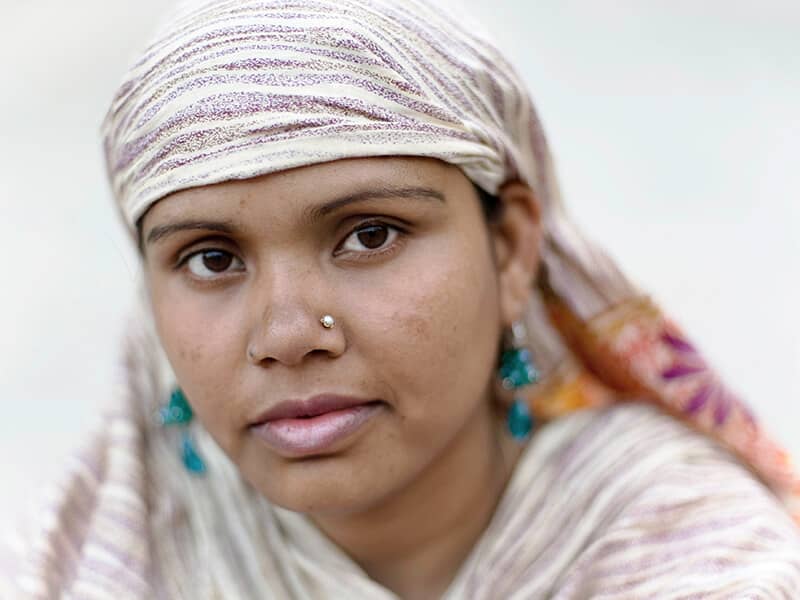On Thursday October 11 at 10 pm EST, ABC will air "Peter Jennings Reporting: Minefield--The United States and the Muslim World," which will give a political, historical, and religious tour of nations that practice Islam. Beliefnet is partnering with ABC to provide additional information on Islam, including a series of free online mini-courses on understanding Islam.
In his interview with Beliefnet, Peter Jennings discussed the forthcoming show and how his own reporting career influenced his views of Islam. In addition to being the anchor for ABC's World News Tonight, Jennings covered the Middle East for ABC from 1969 to 1976.
You were based in the Middle East from late 1969 to 1976. Has the role of Islam changed in those countries since you were there?
The Arab struggle against Israel back then was much more secular. The subsequent rise of groups like Hamas in the occupied territories (which some people will tell you was done with the tacit support of the Israelis as a counterbalance to the power of the PLO) and the rise of Hezbollah in Lebanon (in part with the assistance of the Iranians) was not obviously apparent when I was living there.
Saudi Arabia in the 1970s was a much more open place. I was one of the first television reporters allowed to travel freely there. I don't remember at the time being particularly aware that the strains that have subsequently become apparent were nearly as apparent.
When Saudi Arabia had tons of money, no one had to work particularly hard. Most people in the kingdom got a measure of patronage or income from the state. There was much less tension than there is now, when many Saudis have seen their incomes dwindle to the point of having to get, in some cases, quite menial jobs.
Do you think the economic deterioration is tied to the rise in the role of Islam?
Any time the citizens of any nation feel disenfranchised, for whatever reason, they may be inclined to turn to something which they believe leads them down a brighter path. The failure of Yasir Arafat to achieve much for Palestinian people has them naturally turning to other forces that they think may be more successful at least in confronting the Israelis.
What was your sense of how Islam was depicted in the media prior to September 11, and what's your sense of how it has been depicted since then?
Americans have always had to look rather hard to understand the complexities of all the nations east of the Mediterranean. We have become, in a month, much, much more aware of the complexities than we probably were in the previous ten years.
And the president has been a real leader in this regard--[we now] understand more about Islam.
I don't think anyone serious thinks of Islam as a de facto enemy but since so many of these terrorist [acts] in the last 15 or 20 years are done in the name of Islam, it's important for us to understand: What is Islam? How did Islam get from Saudi Arabia all the way to Indonesia?
As people have tried to calm Americans down--getting us not to equate Islam and terrorism--that's led to discussion: Does Islam actually encourage violence more than Christianity or Judaism?
If we look at fundamentalism, Islam and to some extent Christianity and Judaism are at war with themselves. I just do not know or understand whether there is a dimension of Islam which makes it more susceptible. I'm not aware that Islam is any more violent than Christianity has been.
When people wish to analyze Islam or Christianity or Judaism, they can always find issues, elements, phrases which suit their particular argument. We see it happening with the Bible, the Qur'an--and it is very often the religion's enemies who wish to find those portions to sustain their own arguments.
What are the most important things for us to understand about Islam in this crisis? Or is the religion really a secondary issue to the cultural, political, and psychological issues?
I'm not sure if it's secondary. I think what we're seeing is that given a set of socioeconomic conditions there are people who would use the religion--particularly Islam as a once-great ruling religion--as an opportunity to attack the status quo. We saw it with Ayatollah Khomeini. We see bin Laden trying to do it.
I'm really encouraged by how much debate there is about it, and in a program like this the best we can do is simply add to the conversation, because I'm not sure anyone has the answers.
What are the most significant findings of your reporting?
We try to understand some of the fissures between the United States or what people sometimes call the West and the various strains and various components of Islam. We will show where American influence and culture is much embraced in the Muslim world and where it is resented.
An enormous number of young people look to America or Western culture as something they want to embrace. But some are afraid of the speed with which American culture has traveled--more recently because of television and the Internet. Some people have been left out of the modernization, which some Muslim countries have embraced and others have not. It's extremely complicated. Some people long for what they regard as the glory days of Islam, which are several hundred years ago, and believe that both Islam and countries in which Islam is prevalent will only thrive again if they return to the strict and largely puritanical tenets of Islam. I hope we'll show the contradictions.

